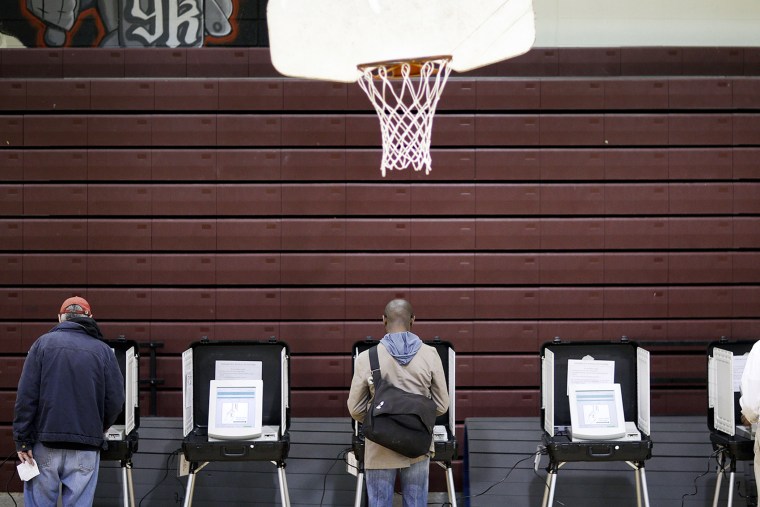Just a couple of days after the 2014 midterms, I
joked that Americans should expect Republican victors to impose even more voting restrictions in light of the results. Not quite two months into the new year, it seems the offhand comment wasn't funny after all.
The state of Georgia, for example, has
already taken steps to put hurdles between voters and the ballot box, and my colleague
Zack Roth reported yesterday that Georgia officials aren't done just yet -- there's a new push to curtail early voting in the state.
A legislative committee voted on party lines last week to advance a bill that would shorten Georgia's early voting period to 12 days, from a current maximum of 21 days. It would also bar counties from offering more than four hours of voting on weekends. The state's early voting period was already cut dramatically just four years ago. The new move comes after a 2014 election in which 44% of voters -- disproportionately minorities -- cast their ballot early. Many counties, responding to popular demand, offered Sunday voting for the first time.
Remember, when Republican officials impose voting restrictions, they usually try to defend the constraints by pointing to "voter fraud." The scourge is largely imaginary, and a thin pretense to keep people from participating in their own democracy, but that's the talking point and the GOP is sticking to it.
But defending efforts to narrow the early-voting window is much harder -- this is completely unrelated to potential fraud. Rather, Georgia Republicans appear eager to make it harder to get to the polls and cast a ballot, just for the sake of doing so.
This would be the second time in recent years state GOP policymakers shortened the early-voting window -- Georgia Republicans did the same thing after the 2010 midterms.
Colorado lawmakers began debating a bill Wednesday that would require voters to present a photo ID if they register to vote on Election Day -- a policy that would disproportionately impact people who are younger, lower income, non-white, and newly naturalized. While attending a recent conference in DC, Secretary of State Wayne Williams told ThinkProgress that he supports these measures despite the fact that investigations by his predecessor found voter fraud to be nearly non-existent in the state.
As it turns out, Colorado Democrats
defeated the proposal yesterday in a legislative committee, though conservative proponents have vowed to keep trying. The goal is to get the issue onto the 2016 ballot.
